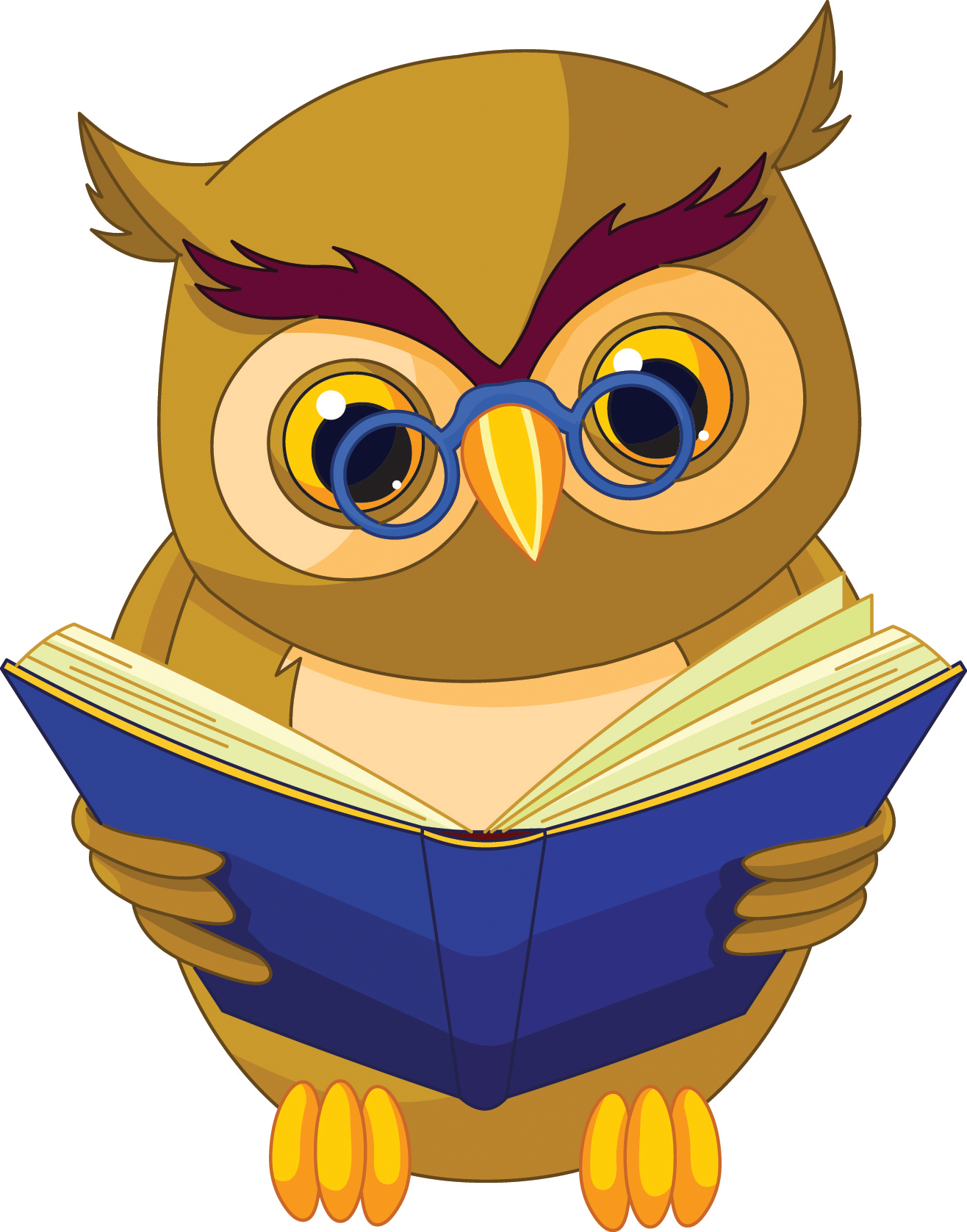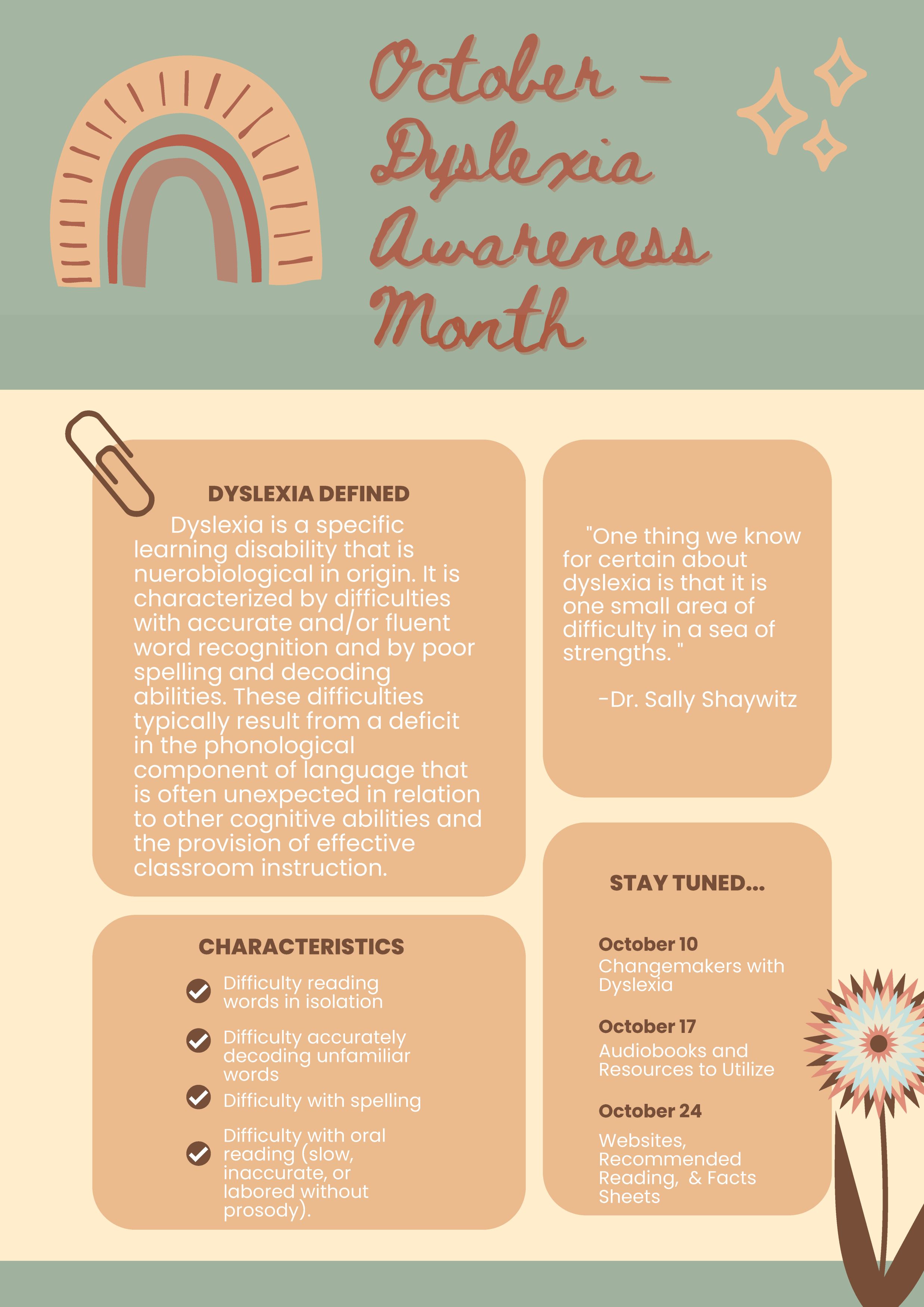February is I LOVE TO READ MONTH

February is I LOVE TO READ MONTH! There are so many things that make February special. Days including Valentine’s, President’s Day, and learning about Black History. In addition to these important things, February is also a time for us to celebrate the love of reading. To celebrate reading in your home there are five things listed below that you can do to celebrate “I Love To Read Month.”
- Share your favorite childhood book with your family.
- Set aside 20 minutes and partner read a picture book or a chapter book with your family.
- Take a trip to the library together and have everyone check out a favorite book.
- Have a family book club. Set a date. Have everyone read the same book and then discuss it over dinner.
- Listen to audiobooks together in the car. Model the fact that books are meant to be enjoyed and can be done anywhere.
Although February is designated as the “I Love To Read Month”, reading is really meant to be enjoyed all year long. So, grab your favorite book, find a few minutes, and share the love of reading with your family!
“I have a Dream…”
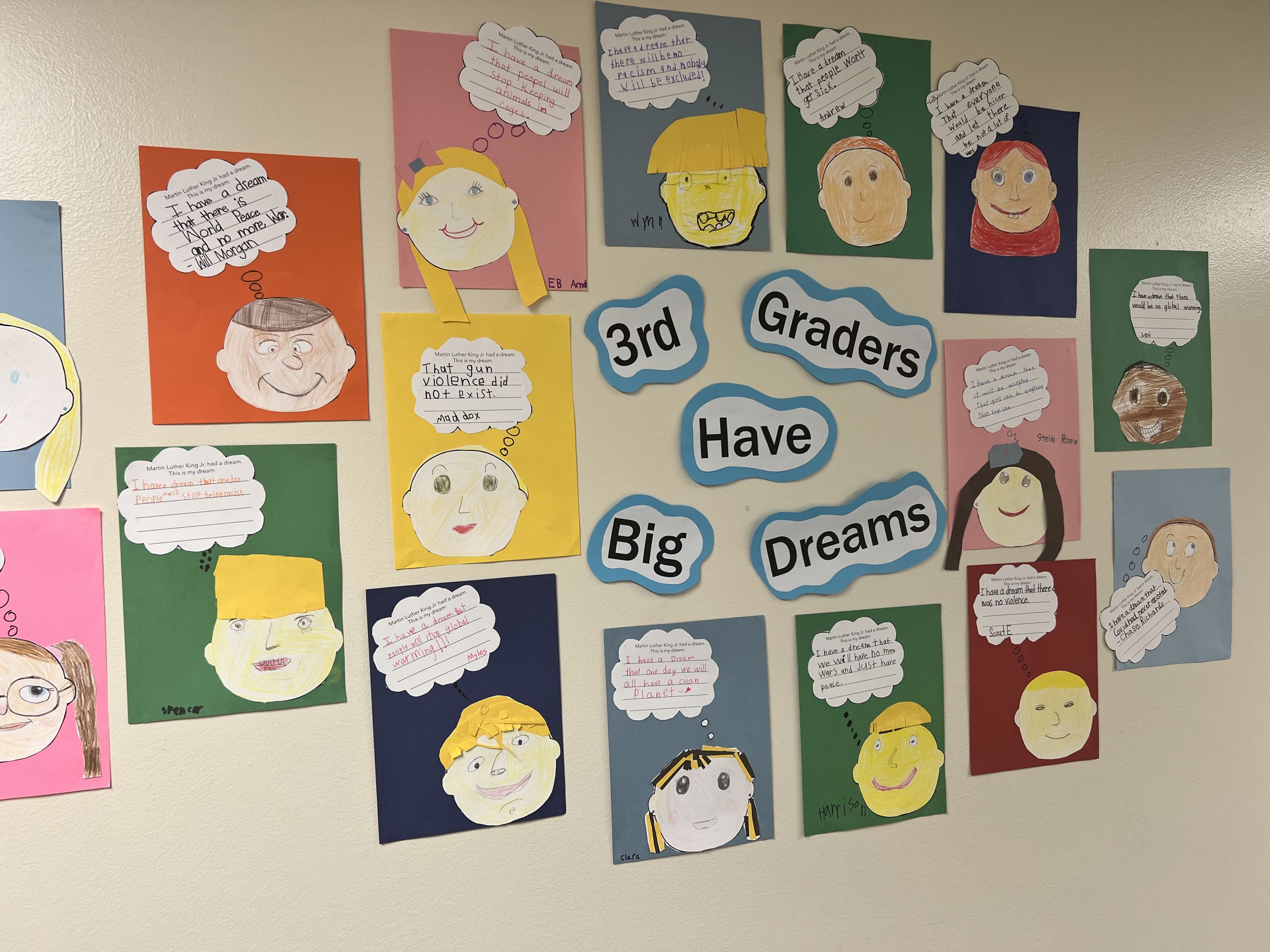
The students in Third Grade have big dreams for their future and the future of our world!
Every January, the students at PHPS learn a little bit about Martin Luther King Jr. as they prepare for the much anticipated three-day weekend. When the students come to third grade, they begin a more detailed study of this great leader and his important role in our Nation’s history.
To start this cross-curricular unit, we begin researching MLK through a variety of resources that discuss the many accomplishments of Dr. King and his role in the Civil Rights Movement. The class also views the famous, “I have a dream” speech and is able to hear and see the passion that Martin Luther King Jr. had for his mission.
The prompt of “What made MLK a great leader” is asked of the students, and they are eager to share their several takeaways. MLK led with peace and set an example that peace is the way to a solution. He did this through his many speeches and by leading marches. His relentless work in Civil Rights contributed to the passing of the Civil Rights Act of 1964. The students then learn about discrimination and segregation.
To wrap up our unit and reflect on the many lessons learned about Martin Luther King Jr., each child shares a dream they have for the world. It always fills our hearts when the students put their vision of the future in their own words. Our students want our world to be filled with love and peace. They want the earth to be healthy and for all of its inhabitants (two-legged, four-legged, and even those with scales) to be taken care of. The future is bright with these caring and kind students.
From Hootie's Nest: A Monthly Look at the Way We Learn
From Hootie's Nest
A Monthly Look at the Way We Learn
What is Dysgraphia? - Dysgraphia is a specific learning disorder (SLD) with impairment in written expression. DYS means difficulty and GRAPHIA refers to writing. Dysgraphia can impact spacing, handwriting, creative writing, spelling, and memory processing.
There are three common types of Dysgraphia – Motor, Spatial and Dyslexic. You can have symptoms from any of the three categories. Motor affects a person’s fine motor skills (including dexterity and muscle tone). Spatial can affect legibility and the ability to write on lines and paper orientation. Dyslexic dysgraphia can present with illegible writing but also displays poor spelling, too.
Signs of Dysgraphia – Signs of Dysgraphia may include inconsistent letter size and spacing, spelling struggles/inconsistency of spelling, and difficulty with creative writing despite verbally telling stories well.
Ways to Help – Many varied approaches can support a student with Dysgraphia including the following – Alternative pens/pencils and grips, less copying, using lined or graph paper, taking writing breaks, using speech-to-text dictation, utilizing the option to type, making sure the body is in the proper writing position. Strengthening fine motor skills is important, too. Building with blocks, snap cubes, and Legos and even crafting with clay or playdough are fun ways to build strong hands. Eating bite-sized snacks with tweezers instead of fingers and creating with pearler beads or jewelry can be both fun and challenging for boosting hand strength and supporting a developing pincer grasp.
Did you know? At PHPS, Kindergarten, First and Second grade students have devoted time in their weekly Motor classes to practice handwriting and work on fine motor skills targeting body strength, stamina, and visual coordination. In Third grade, students begin to learn cursive and keyboarding skills as well so that they may choose to type longer writing pieces. Fourth through Sixth graders become more proficient in their keyboarding skills and even begin to use voice-to-text dictation, too.
New Year, New Habits!
.png)
Happy New Year! How are your resolutions going? The practice of making a new year’s resolution dates back to ancient Rome. Julius Caesar established January 1st as the first day of the new year and named the month January for Janus, a two-faced god who symbolically looked backwards into the previous year and ahead to the future year. Romans made promises of good conduct to the deity for the coming year. Yet, the fact that we have been making resolutions since 45 BC has not improved our ability to keep them! About 83% of resolutions are broken before we even get to Easter. Why is that?
One reason is habits. A habit is something we do without even thinking. They are triggered by cues in our environment. Research suggests that over 40% of what we do each day is determined by habit, not by decision. So, in order to change a habit, such as eating junk food, the old habit must be replaced by a new one. Performing the new behavior forms new neural pathways that can be used instead of the old ones. Of course, this takes time, and it takes consistency and determination.
We are continually talking with your children about their goals at school and encouraging their resolve to meet those academic goals. This is a good time of year to check in with your student and determine if they could change an old habit at home that may be less than productive. Does your child procrastinate when it comes to starting homework? Does he/she often forget to complete assignments at home? Does your child spend too much time on digital devices or social media? The start of a new year can be an opportunity to discuss replacing old habits with new ones.
Help your child set their goal by using positive terms that convey choice, such as want or could rather than terms that convey compulsion, such as should or must (i.e. “I can complete my homework before I watch tv”, rather than “I should complete my homework before I watch tv”). We are much more likely to follow through and achieve goals when they are seen as our own choice. Then, determine the cue that leads to the behavior. If your child takes out their phone as soon as he/she gets in the car at carpool, replace that response with something different, such as getting in the car and immediately opening a snack and telling you about their day. Work on replacing the old behavior with the same new one each day.
New year resolutions are indeed difficult to keep, but maybe if we just think of resolving to replace one bad habit with a new one, one day at a time, it may seem a little more attainable… I will check back in with you around Easter!
ADHD: So Many Resources, So Little Time!
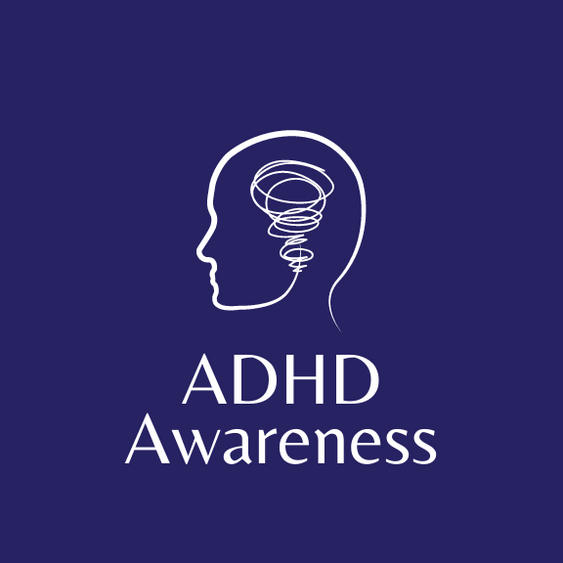
According to Children and Adults with Attention-Deficit/Hyperactivity Disorder (CHADD) website, a respected resource, ADHD is characterized by developmentally inappropriate levels of inattention, impulsivity, and hyperactivity. ADHD is a life-span disorder that can be diagnosed in children as young as 4 years old. Since there are different levels of severity, the appearance of ADHD symptoms can vary from child to child. Understanding ADHD is important to support those you love with ADHD. Knowledge is critical to provide awareness and teaching self-advocacy to help a child navigate through elementary school and beyond.
ADHD has been researched and many have written about its symptoms, diagnoses, treatment, and how to cope with ADHD.
The following recommendations from Homework Help found on the CHADD website can help create an environment for a child with ADHD to be more successful with their homework assignments.
- Before getting started, make sure your child has the supplies needed to do homework: planners, daily checklists, folders, pens, timer, etc.
- Involve your child in setting up the space to help figure out what works best for him or her early in the school year.
- Remove or minimize things that distract or cause stress. Position desks or tables so they face away from doors or windows and relocate the television.
- If possible, find an open space or accessible room with good lighting. An uncluttered table or desk available is a good idea.
- Help your child read the homework directions…highlight the central part, questions, and instructions.
- Write down important information so it can be accessed easily.
- Set up a consistent time for your child to do homework…establish routines and expectations.
- Use a timer to manage attention and help your child stay on task.
- Schedule short breaks (5–10 minutes).
- Encourage your child to move around during breaks.
Keep in mind that your child’s strongest advocate is you. You do not need to know everything, just be ready to model how to advocate so your child can feel comfortable advocating for themselves.
Resources:
Driven to Distraction by Edward M. Hallowell and John J. Ratey
Service Learning and the Season of Giving at PHPS

PHPS is a wonderful place where our students can grow academically, personally, and spiritually while embracing their skills and talents. But it is also a place where students gain the meaning of service and giving, whether in the form of love, kindness, care, compassion or by donating gifts to others in need.
In this “Season of Giving”, our school reflects on what the spirit of giving genuinely means and provides many opportunities where our young students can express generosity. It really isn’t just meant to be a season, but rather a way of life, and we believe this needs to begin in a child’s formative years.
What is Service Learning? Service Learning is when an educational institution offers service activities that link human and community needs into its learning environment.
At PHPS, the Community Service Committee organizes several outreach programs and activities for the students throughout the school year. Students help coordinate the effort by making videos about the organization, drawing posters to hang throughout the school, and even going to the facility itself to help volunteer (stock shelves, drop off donated items, etc.) Some examples are:
- Making cards for troops to send overseas (through music station Country 96.3)
- Donating gifts to Vogel Alcove Holiday Store where parents of homeless children can shop
- Purchasing and wrapping Angel Tree gifts for low-income families
- Donating warm coats to MLK Jr. Arts Academy
- Collecting canned goods for North Dallas Shared Ministries
Additionally, PHPS’ school counselor, Mrs. Plifka, provides monthly SEL lessons. For the months of November and December, she is focusing on empathy, gratitude, generosity, and compassion for self and others. In these lessons, our students discuss and collaborate openly on these characteristics to gain a further understanding of their meaning and how they can make a difference within our school community, the local community, and at home. This could be something as simple as inviting a friend over for a playdate, or picking them to be on their team during recess, asking them to sit with you at lunch or work on a school project together. In the end, we want our students to think about how to put more smiles on faces because there is no better feeling in the world than watching someone smile because of something YOU did.
No matter your definition of giving, there are so many ways during this Season of Giving to bring joy to others, and the PHPS community proudly embraces this culture with our students!
Homework Tips
.png)
Homework, homework… that may be a big topic in your household right about now. Homework is necessary for students to practice skills and reinforce concepts. It also helps students build organizational skills and develop effective study skills. Your child should be able to complete all homework independently. If that is not the case, please contact your child’s teacher right away. Here are some tried and true tips that may help homework time run a little smoother:
- Help your child create a homework space. Whether your child completes homework in his/her room or at the kitchen table, make sure your child has a distraction-free designated work space equipped with pens, pencils, paper, a calculator, etc. Some students work better with some background noise like music, but some need quiet. Remove stimulation like phones, iPads, TVs, or computers. Sometimes it is necessary to put these items in a completely different room to eliminate the temptation. It may be asking the impossible to expect a child to ignore the very familiar “ding” of a notification.
- Establish a set time for homework. Your student may need to unwind and have a snack or watch a show before beginning homework. Perhaps your child likes to get homework over with as soon as he/she walks in the door. Find out what works for your child, then set the same routine every day. Use a calendar or the school planner to schedule after-school activities, so you can adjust the start time of homework for that day. Ask your child for input so they have ownership over when to begin homework rather than being told when to begin homework each day.
- Encourage independence. Homework should be practiced and reinforcement. It does not need to be perfect. Resist the urge to correct their homework. They will learn more if they bring the imperfect assignment back to school. This tells the teacher the skill needs to be reinforced, and it also allows your child to learn from doing.
- Teach, don’t tell. If your child has a question about homework, do not tell them the correct answer. Try to help by providing tools for your child to find the right answer on his/her own. There is an old proverb attributed to Benjamin Franklin that says, “Tell me and I’ll forget, show me and I may remember, involve me and I’ll understand”.
- Build time management skills. Help your child prioritize their homework assignments and decide what to begin first. Younger students need help estimating how long an assignment may take. Encourage your child to make a list of the order in which to complete each task. Teach your child to create a list and check off assignments as they are completed and returned to their folder to go back to school. Include break times in your child’s homework schedule. A timer can be helpful to keep your child on task for a short period of time. You can gradually increase the time to encourage longer periods of focus and concentration.
- Partner with your child’s teacher. If your student struggles to complete homework, reach out to the teacher immediately. If your child is spending an unreasonable amount of time on homework or getting frustrated, discontinue for the evening and notify the teacher. Every student at PHPS is taught grade-level appropriate homework and study skills. Contact your child’s teacher if you have any questions about the study skills and organizational system used in your student’s grade level. Encourage your child to follow through with the system at home.
If you help your student establish a routine now, these practices will become habits later. Homework may never be fun, but instead of an insurmountable job, it will just be a manageable daily task.
Faculty Book Pick: Thrivers By Dr. Michele Borba
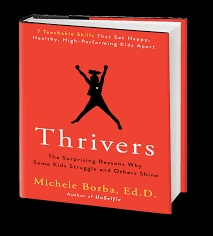
We think we have to push our kids to do more, achieve more, be more. But we’re modeling the wrong traits—like rule-following and caution—and research shows it’s not working. This kind of “Striver” mindset isn’t just making kids unhappier, says Dr. Michele Borba…it’s actually the opposite of what it takes to thrive in the uncertain world ahead.
Thrivers are different: they flourish in our fast-paced, digital-driven, often uncertain world. Why? Through her in-depth research, Dr. Borba discovered that the difference comes down not to grades or test scores, but to seven character traits that set Thrivers apart—confidence, empathy, self-control, integrity, curiosity, perseverance, and optimism. The even better news: these traits can be taught to children at any age…in fact, parents and educators must do so.
In Thrivers, Dr. Borba offers practical, actionable ways to develop these traits in children from preschool through high school, showing how to teach kids how to cope today so they can thrive tomorrow. -Amazon book review
Why It’s a Staff Fav!
PHPS uses the RULER approach, which is an evidence based approach to SEL (social-emotional learning) developed at the Center for Emotional Intelligence at Yale (RULER — Yale Center for Emotional Intelligence)
Over the summer, PHPS staff read Thrivers and will be participating in a book study on the seven character strengths discussed in the book. Keeping the RULER approach in mind, our goal as a school community is to assist students in developing the skills to strengthen their emotional intelligence and grow their overall academic and personal well-being.
We hope you join us!
Purchase on Amazon: Thrivers: The Surprising Reasons Why Some Kids Struggle and Others Shine

PHPS Stories Coming Soon
We are excited to announce a new area of the PHPS website. PHPS Stories will be a special space to share the stories of our community. We will celebrate our PHPS family through learning and life achievements. Visit again in the fall of 2022 to see more!
.png)
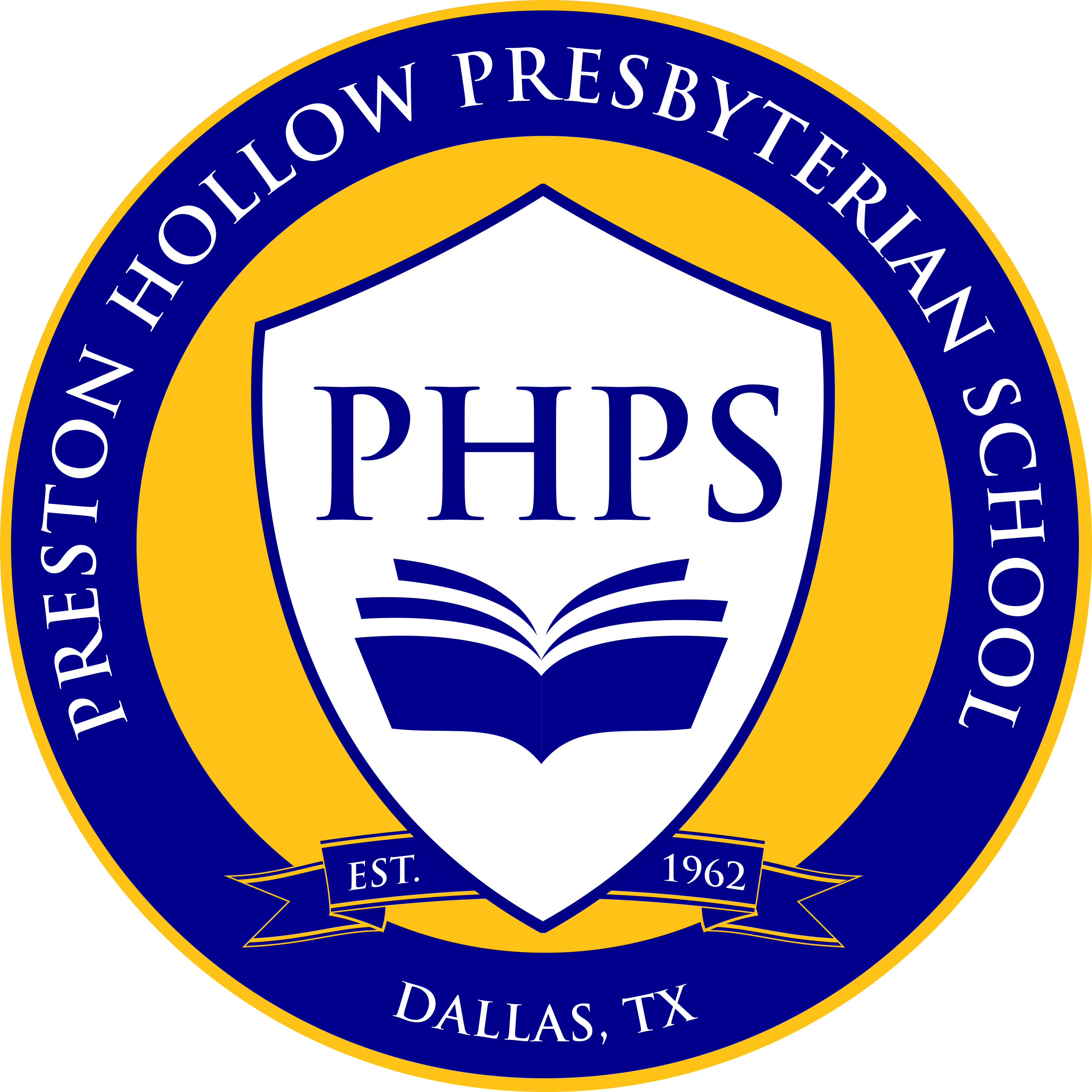

.png)
